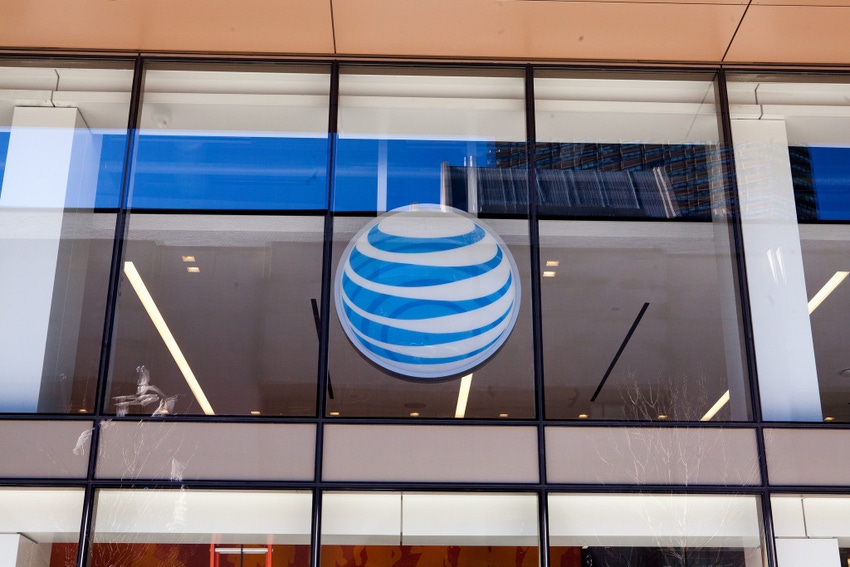Private equity firms are said to be in talks to acquire large minority stakes in the US telco's DirecTV, AT&T Now, and U-Verse units.
November 4, 2020

Private equity firms are said to be in talks to acquire large minority stakes in the US telco’s DirecTV, AT&T Now, and U-Verse units.
The rumour – first reported by CNBC on Tuesday – will come as welcome news to activist AT&T investor Elliott Management, which has been pressuring the company to divest its media assets in order to reduce debt.
However, Elliott is unlikely to be pleased by the reported valuation for DirecTV. At less than $15 billion including debt, it is a somewhat paltry figure compared to the $67 billion that AT&T agreed to pay for the satellite TV provider in 2014.
The rise of streaming has come to the detriment of traditional direct-to-home (DTH) TV services, a trend that has hit AT&T hard. It ended the third quarter with 17.1 million premium TV customers; a year earlier that figure stood at 20.4 million. In the three months to 30 September, AT&T lost 590,000 TV subscribers, due to a combination of competition and users shopping elsewhere after coming to the end of promotional price plans.
What’s more, AT&T has gotten off to a tricky start in the streaming market, serving up two offerings that overlap in places: AT&T TV Now, which combines live TV and VoD – including bolt-on HBO content – delivered over broadband, and HBO Max, which offers a streamable catalogue of HBO shows and films.
In its third quarter results presentation, AT&T hailed HBO Max’s progress, pointing out that it is available to 28.7 million subscribers, and that 8.6 million of those are now paying customers. However, AT&T TV Now is not faring so well, ending the quarter with 37,000 fewer customers following the withdrawal of promotional pricing. By comparison, rival streaming service Disney+, which launched six months before HBO Max but after AT&T TV Now, has already scooped up more than 60 million subscribers.
It perhaps explains why a minority stake in AT&T TV Now is one of the assets CNBC claims is up for grabs.
According to sources cited in its report, the proposed deal would see AT&T keep majority control over its TV businesses, and would retain U-Verse infrastructure, including plants and fibre. The buyer would take control of the pay-TV distribution operations, consolidating them onto its balance sheet. The sources claim the deal could see the buyer take a 30-49 percent stake in AT&T’s combined pay-TV distribution businesses.
Final bids are said to be due in early December, and private equity firm Apollo Management has been named as one potential suitor. There is also a separate rumour circulating that Amazon CEO and Washington Post owner Jeff Bezos is eyeing up AT&T’s CNN unit. However, this one seems to be tenuous at best.
Selling off a chunk of these assets would help AT&T reduce its long-term debt, which stood at nearly $153 billion at the end of Q3. Nearly $6 billion of that is due to mature within a year. It would also presumably free up resources to plough into HBO Max, which competes head-on with Netflix, Amazon Prime Video and the aforementioned Disney+, among others.
The move would probably also further ease Elliott’s misgivings about AT&T CEO John Stankey. As COO, he was the architect behind the company’s huge media spending spree that included a $85 billion deal for Time Warner, on top of the $67 billion for DirecTV. Stankey’s anointment last year as successor to group CEO Randall Stephenson was reportedly what prompted Elliott to invest in AT&T and start agitating for change.
Whether a deal can be struck in time to enable AT&T to take a big chunk out of its competitors’ shares of the streaming video market is of course anyone’s guess.
About the Author(s)
You May Also Like








.png?width=300&auto=webp&quality=80&disable=upscale)


_1.jpg?width=300&auto=webp&quality=80&disable=upscale)


.png?width=800&auto=webp&quality=80&disable=upscale)